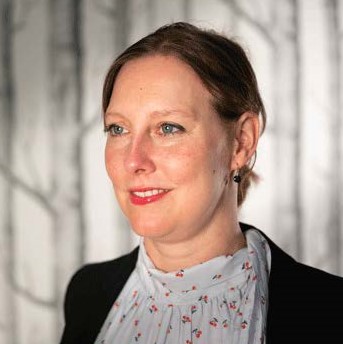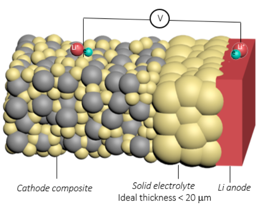Prof. Jennifer L. M. Rupp FRSC
Technische Universität München (TUM), Germany
CTO, TUM International Energy
Thomas Lord Associate Professor of Materials Science and Engineering
Associate Professor of Electrical Engineering and Computer Science
Massachusetts Institute of Technology
Date: December 1, 2021
Time: 1300h ET
Sponsors: Hiden Analytical, Royal Society of Chemistry, Instron, Metrohm
The next generation of energy storage devices may largely benefit from fast and solid Li+ ceramic electrolyte conductors to allow for safe and efficient batteries and fast data calculation. For those applications, the ability of Li-oxides to be processed as thin film structures and with high control over lithiation and phases at low temperature is essential to control conductivity. Through this presentation the field is reviewed from a new angle, not only focused on the classics such as Li-ionic transport and electrochemical stability window for Li-solid state battery electrolytes, but focusing on opportunity and challenge routes in thermal and ceramic processing of the components and their assemblies with electrodes. Also reviewed and given perspective is the role of solid state battery ceramic strategies for the electrolyte on the electrode interfaces and towards charge transfer and versus current densities. In other words, it will be a little ceramicist (own) love story on the good and evil that can be designed by smart ceramic design at the interfaces originating by the very first choices made in the electrolyte ceramic structure and material design. In the second part of the talk, new opportunities are discussed on low temperature processing of solid state electrolyte ceramics that do not technically require “classic sintering” and avoid prior particle calcination—instead demonstrating opportunities to use liquid-based direct densification routes and vacuum techniques to design solid electrolytes, and grafting interfaces to new hybrid and solid state battery prototypes targeted at processing below 700C for all parts. Collectively, the insights on solid state energy storage provide evidence for the functionalities that those Li-solid state material designs can have for cost and mass-manufacturable solid state and hybrid battery prototypes.
Benefits of attending the webinar
Learn about:
- Solid state batteries;
- Ceramic manufacturing material choices;
- Battery design.
Jennifer L. M. Rupp
 Prof. Jennifer Rupp is the Thomas Lord Associate Professor of Electrochemical Materials in the Department of Materials Science and Engineering, and Associate Professor at the Department of Electrical Engineering and Computer Science at the Massachusetts Institute of Technology (MIT). She has joint appointments as Professor at the Technische Universität München (TUM), Germany, and as CTO, TUM International Energy. The Rupp team’s current research focuses on processing ceramic and glass materials, solid state material design, and tuning structure-property relations for novel energy and information devices and operation schemes. This ranges from alternative energy storage via solid state batteries, solar-to-synthetic fuel conversion or novel types of neuromorphic memories and computing logic entities for data storage and transfer beyond transistors, and new sensing functions to track chemicals in the environment.
Prof. Jennifer Rupp is the Thomas Lord Associate Professor of Electrochemical Materials in the Department of Materials Science and Engineering, and Associate Professor at the Department of Electrical Engineering and Computer Science at the Massachusetts Institute of Technology (MIT). She has joint appointments as Professor at the Technische Universität München (TUM), Germany, and as CTO, TUM International Energy. The Rupp team’s current research focuses on processing ceramic and glass materials, solid state material design, and tuning structure-property relations for novel energy and information devices and operation schemes. This ranges from alternative energy storage via solid state batteries, solar-to-synthetic fuel conversion or novel types of neuromorphic memories and computing logic entities for data storage and transfer beyond transistors, and new sensing functions to track chemicals in the environment.
Prof. Rupp completed her PhD at the Eidgenössische Technische Hochschule (ETH) Zürich where she held the position of assistant professor and received an SNSF ERC Starting Grant and Swiss National Science Foundation (SNF) professorship. Her postdoc at ETH Zürich (2010-2006) was followed by a position as Researcher at the National Institute of Materials Science (NIMS) in Tsukuba, Japan (2011), and Visiting and Senior Scientist at MIT (2011-2012). Prof. Rupp has published more than 110 papers, holds 19 patents, and is a frequent speaker and panel member of the World Economic Forum. She engages with companies around the world through consulting and collaborations focused on material processing or electrochemical device and product engineering. Since this year, she is an elected Board Member on batteries and inorganic material production for Unifrax LLX. Prof. Rupp is Associate Editor of the Journal of Materials Chemistry A and on the advisory board of Advanced Functional Materials and Advanced Materials Interfaces.
Her team’s research has garnered significant honors including the Merck KGaA 2018 Displaying Future Award; BASF and Volkswagen Science Award 2017; 2015 World Economic Forum “Top 40 international scientists under the age of 40;” 2014 ETH Zurich Spark Award; 2012 European Academy of Science Kepler Award; and Solid State Ionic Society Young Scientist Award. Prof. Rupp is a Fellow of the Royal Society of Chemistry (2021) and delivered keynote addresses at significant meetings such as Nature Sustainability and StorageX (2021), the Royal Society (2018), Nature Conference on Materials for Energy (2016), and Gordon Research Conference (2014), as well as presenting on battery and energy technologies at the 2017 World Economic Forum.
Learn more about upcoming ECS Webinars and review our previous webinar recordings.
We thank our webinar sponsors who make these complimentary programs possible.
Interested in presenting in the ECS Webinar Series? Email your presentation title and abstract to education@electrochem.org for consideration.
References:
- Pfenninger, M. Struzik, I. Garbayo, E. Stilp, and J. L. M. Rupp, Nature Energy, 4, 475–4832019 (2019)
- L. M. Rupp, R. Pfenninger, M. Struzik, A. Nenning, I. Garbayo, Lithium-Containing Thin Films, US 62/718,838 (2018)
- L. M. Rupp, R. Pfenninger, M. Struzik, A. Nenning, I. Garbayo, Methods of Fabricating Thin Films Comprising Lithium-Containing Materials, US 62/718,842 (2018)
- Garbayo, M. Struzik, W. J, Bowman, R. Pfenninger, J. L. M. Rupp, Advanced Energy Materials, 1702265 (2018)
- D. Hood, Y. Zhu, L. Miara, J. L. M. Rupp, Solid-state Electrolyte and Method of Manufacture Thereof, US 62/713,366 (2018)
- Zhu, Z. D. Hood, L. Miara, J. L. M. Rupp, Solution-Processed Solid-state Electrolyte and Method of Manufacture Thereof, US 62/713,428 (2018)


